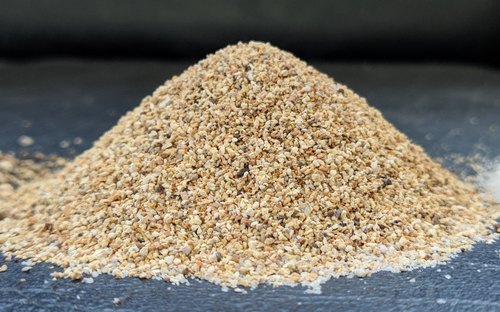
Refractory bed material for afbc / cfbc boiler
Refractory Bed Material: The Backbone of Efficient Combustion
In modern industrial boilers, fluidized bed combustion (FBC) technology has become the standard for efficient fuel burning. At the heart of this system lies an unsung hero — refractory bed material. Often overlooked, this specialized material plays a critical role in maintaining combustion efficiency, protecting furnace internals, and extending equipment life.
What is Refractory Bed Material?
Refractory bed material refers to specially processed refractory minerals designed to withstand high operating temperatures and harsh combustion environments. Unlike ordinary sand or ash, these materials exhibit superior thermal stability, low alkali content, and consistent granulometry, making them ideal for circulating or bubbling fluidized bed boilers.
Typically made from calcined bauxite, high-grade silica, or alumina-based minerals, refractory bed materials are chemically inert and resistant to fusion at high temperatures. This ensures a stable and uniform bed, which is crucial for efficient fuel-air mixing and combustion.
Why Refractory Bed Material Matters
Thermal Efficiency:
Refractory bed material retains heat effectively, ensuring optimal combustion temperatures are maintained within the boiler, leading to better fuel burn rates and reduced energy waste.Operational Stability:
A stable bed material supports the fluidization process, promoting uniform temperature distribution and minimizing localized overheating or dead zones in the furnace.Resistance to Agglomeration:
Quality refractory materials resist sticking and clumping even under prolonged operation, preventing bed choking and unplanned shutdowns.
Choosing the Right Bed Material
Not all bed materials are created equal. Key factors to consider when selecting refractory bed material include:
Particle Size Distribution: Uniform sizing prevents segregation and enhances fluidization quality.
Low Alkali Content: Reduces chances of clinker formation and sintering.
High Fusion Point: Ensures material remains stable even under peak load conditions.
Chemical Inertness: Avoids unwanted reactions with fuels or additives.
Sourcing material from a reliable supplier who tests each batch for consistency is essential to maintain boiler performance over time.
Applications Across Industries
Refractory bed material finds applications in:
Power generation plants
Paper mills
Chemical industries
Cement manufacturing
Biomass and waste-to-energy boilers
Wherever efficient and consistent combustion is required, refractory bed materials play a pivotal role in supporting operations.
SIZES: We can manufacture custom size as per requirement. The basic and common size is 0.8 to 2.36 mm

- 19/20 N Ancillary Industrial Area, Tupudana, Hatia, Ranchi - 834002
- +91 651 2290628
- +91 8051039435
- sales@ranchirefractories.com
